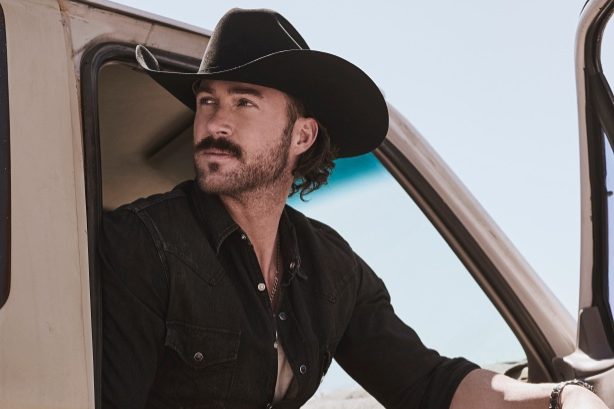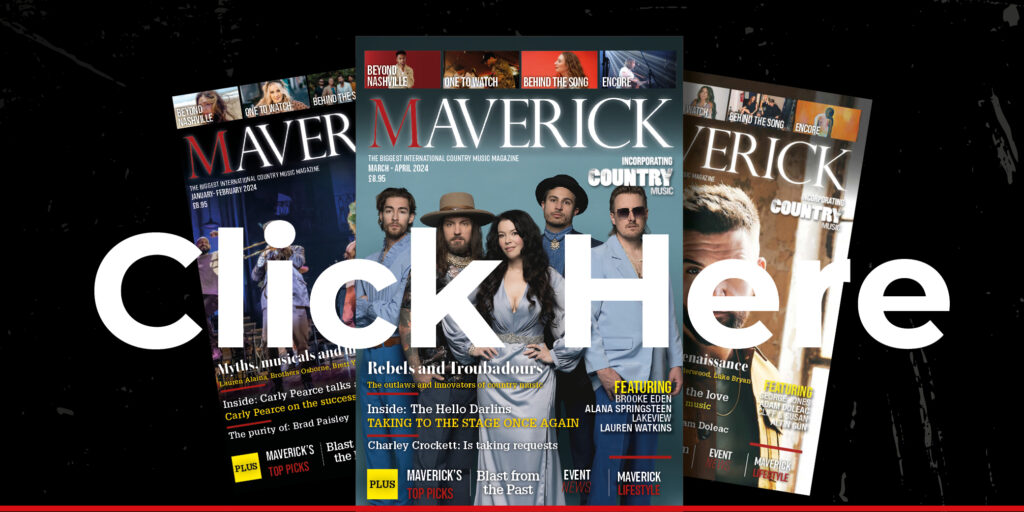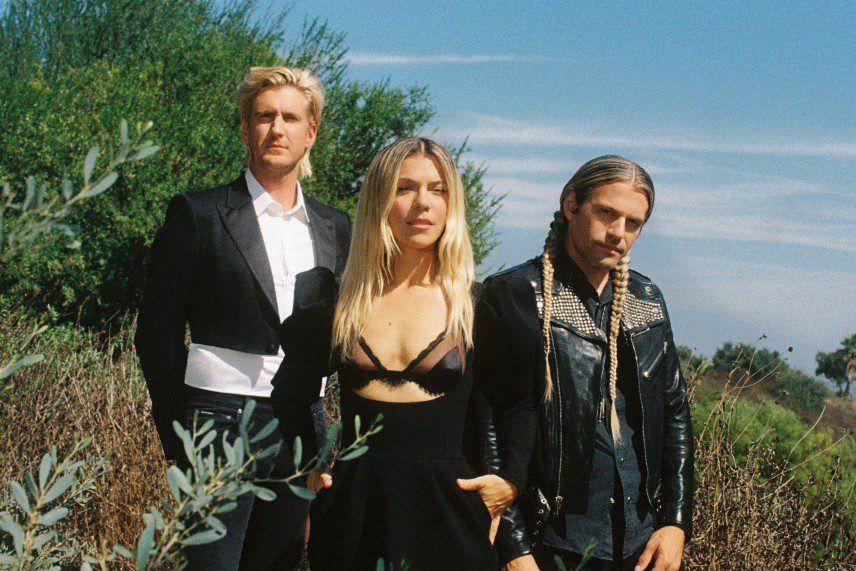
Interview: Jason Isbell – The Nashville Sound
Former Drive-By Trucker and Grammy Award-winning singer-songwriter Jason Isbell hooks up with The 400 Unit to bring us a fresh take on The Nashville Sound.
In the spring, Jason Isbell marked an anniversary with a quietly contented post on social media. “This week marks 10 years since I parted ways with the Drive-By Truckers,” he wrote. “I weigh one pound less than I did then. Pretty proud of that.”
As we meet in London, he laughs when I bring it up. “Yeah, at 38 I weigh less than I did at 28,” he says in his usual soft tones. “For an American, that’s tough, because we all just balloon. I guess the point of that is I’m in better shape than I was then, and I feel younger than I felt 10 years ago.”
The statistic is a measure of how low Isbell’s life had dipped, during his days with the esteemed southern rockers of Athens, Georgia. But it also delineates his personal recovery and professional evolution ever since. His unceasingly admirable new album The Nashville Sound, the first since 2011 on which he shares the billing with his band the 400 Unit, comes shimmering into the long glow cast by two colossal predecessors, 2013’s Southeastern and the double Grammy-winning Something More Than Free in 2015.
The Nashville Sound is produced, like those two forerunners, by the apparently omnipresent (and quite possibly omniscient) Dave Cobb. Just as he has done with Chris Stapleton, A Thousand Horses and others, he encouraged a vibe of spontaneity on what is at times a more muscular, yet still reflective, body of work.
“A lot of this is live, even vocals,” confirms Isbell. “Dave’s got me doing that and I like it once it’s done. It’s kind of nerve-wracking as it’s going along, because I used to take two or three days to sing everything and try to get it perfect. I think that sucked some of the soul out of it. So Dave cajoled me into keeping some live vocals, and it works good, because then I don’t have to go back and sing a bunch of crap at the end of the sessions.”
Isbell is on a roll, and he is cautiously but undeniably upbeat about it, acknowledging the accelerated awareness that now greets his excursions to the very core of modern-day Americana. “It started with Southeastern, and then Something More Than Free carried that forward,” he says. “That’s great, that’s what you want. It takes some adjusting, but all the problems are good ones.
“The rooms got nicer, the audiences got bigger and I was able to buy better guitars and hear myself every night. All the things you dream about. Having a private bathroom before the show. You’d be amazed how far that goes towards your happiness on a day to day basis,” he adds drily. “So now, if I’ve got my family with me, I can tour. However long they want me to tour, I’ll tour, as long as my family’s around, and that’s a great thing.”
It’s a Family Affair
Isbell married fellow musician Amanda Shires in 2013, and their baby daughter Mercy Rose celebrates her second birthday in September. We’re speaking during a brief London sojourn to talk up his new album and, far more importantly, for him to meet up with Amanda as she opens on tour for John Prine.
The year Shires was pregnant, and then gave birth to Mercy Rose, Jason stayed home all year. The work-life balance is in good order, which is way more than you could say about his hard-living past.
Born in Green Hill, Alabama, to teenage parents, he emerged from a church-drilled upbringing to bust out of college and get a publishing deal at Muscle Shoals’ celebrated soul headquarters, FAME Studios. Having befriended its resident bass-playing figurehead David Hood, Isbell got to know his son Patterson, leading Jason to join the already-admired band that Hood Jr had co-founded, southern alt-rockers Drive-By Truckers.
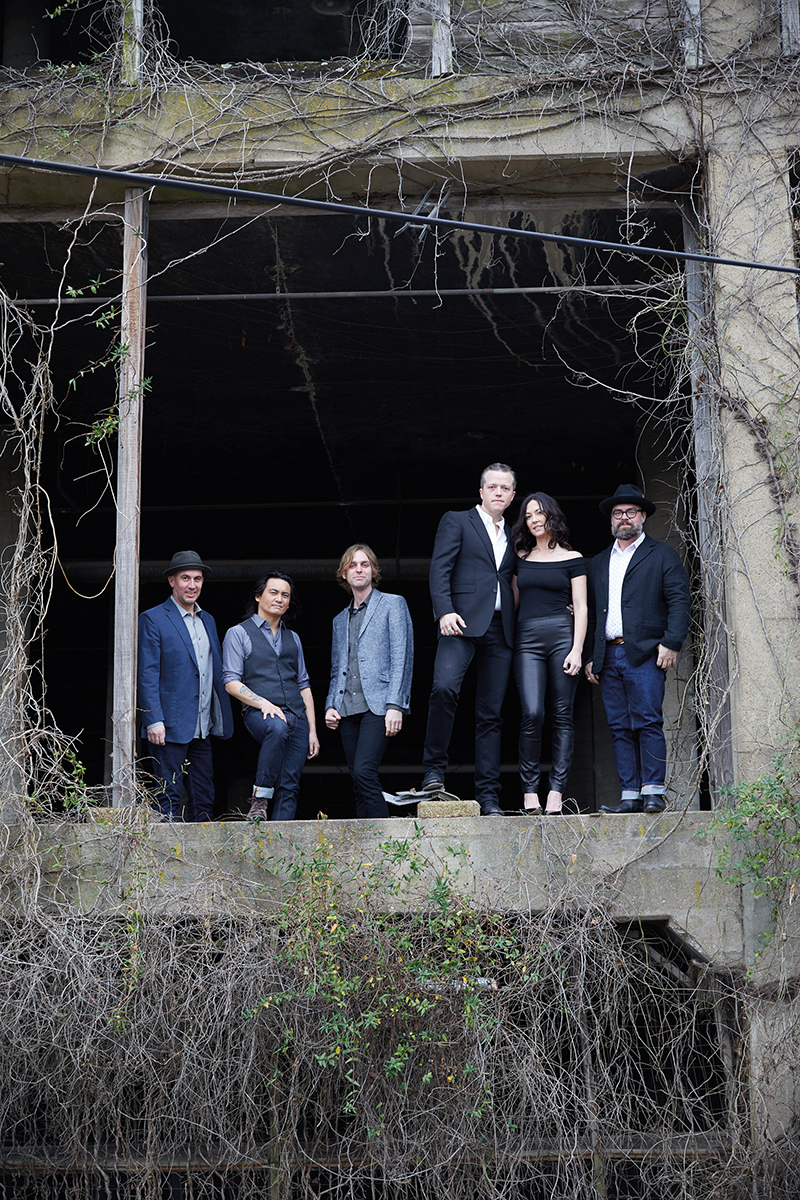
Isbell was with them between 2001 to 2007 and appeared on albums such as Decoration Day, The Dirty South and A Blessing And A Curse, he gradually established himself among their writing team, and as Hood’s co-vocalist, with songs of bloodied rawness that reflected his own increasing reliance on chemical and alcoholic recreation.
Have a listen to Never Gonna Change, for example, on 2004’s The Dirty South, for a tale of black-eyed peas and shotgun shells that tastes like a mouthful of southern grit, and which reflected an unswerving hedonism.
“You can throw me in the Colbert County jailhouse, you can throw me off the Wilson Dam,” he wrote. “But there ain’t much difference in the man I wanna be and the man I really am,” he added, with the confidence of Cash and the defiance of Haggard.
“I’m really happy that I was in that band and I’m proud of the work that we did,” he says as he casts a thought on his old behaviour. “I have a really good memory, and I’ve recently discovered that it can be traced to certain traumatic events in my childhood.
“I needed to remember very specific details, for reasons I won’t go into, but I trained myself to have a very strong memory. I’ve played those [Truckers] songs so much and toured so much, that the ones that I still perform, I try to put myself in that place every night, because I don’t ever want to go through the motions.
“So I still remember what the whisky tasted like, I still remember the hangovers. They’re interesting to me now,” he says, with an almost scholarly diversion, “because if you’d never had anything to drink and you woke up feeling like that, you would think you were dying. You would go to the emergency room immediately. But when you’re hungover, you’re like ‘I deserve this.’ That’s pretty incredible.” Such is the learned reflectiveness of the older Isbell.
“But I still remember all those things, and I’m glad that I do. I love those songs. That’s the only thing that I have from then that means anything. Some of them I’m still amazed by, sometimes. Every once in a while there’ll be a line and I’m like, ‘This line is total shit, obviously I was 21 when I wrote it.’ But sometimes I sit back and think ‘Wow, I hit something there that would take me a lot of work, even now.’”
What those years have bequeathed, for all of the struggle they represented, is an informed experience that he would not trade. “I have differing opinions,” he muses. “Most of it I don’t regret. I don’t think regret does you really much good anyway. Because I know what that was like, and I don’t have to wonder.
Now I’ve got a kid, and if she comes to me with a question, chances are I’ve got some experience of it. Unless they start coming up with some new drugs in the near future, because I’ve done all the old ones, man. I had to get tired of it. Bottom line is, I did what I needed to do, and I needed to stop, so I stopped, and it wasn’t as simple as that, and it’s still a struggle sometimes.
“There are so many positive examples of how things have changed for me, that as long as I’m grateful enough, I’m fine. That doesn’t just apply to recovery, it applies to a lot of things. You get a lot further if you start counting the things you have that maybe the guy next to you doesn’t have.”
That also extends to the rare advantage of having a partner who is not only a musician, but a creative sounding board and taskmaster. “It helps a lot, and her different experiences also,” avows Isbell. “Amanda’s finishing a masters in poetry right now, so her editing skills have gotten very sharp.
“She helps edit the songs. She doesn’t use a red pen, so that’s how I know she loves me,” he says with a smile. “But she’ll circle things and write ‘Is this exactly what you mean to say?’ Just enough to shake my brain loose, get the marble rattling around again, and that means so much.”
Changing Sound of Music City
After opening with the easy-going, sunny-side-up Last Of My Kind, the new album does indeed have a more rocky demeanour at times compared with Isbell’s recent work. But, for instance, the riff-driven swagger of Cumberland Gap or Anxiety never dilutes the innate, soulful intimacy of Tupelo or Something To Love, and both styles are exhilarating in their own way.
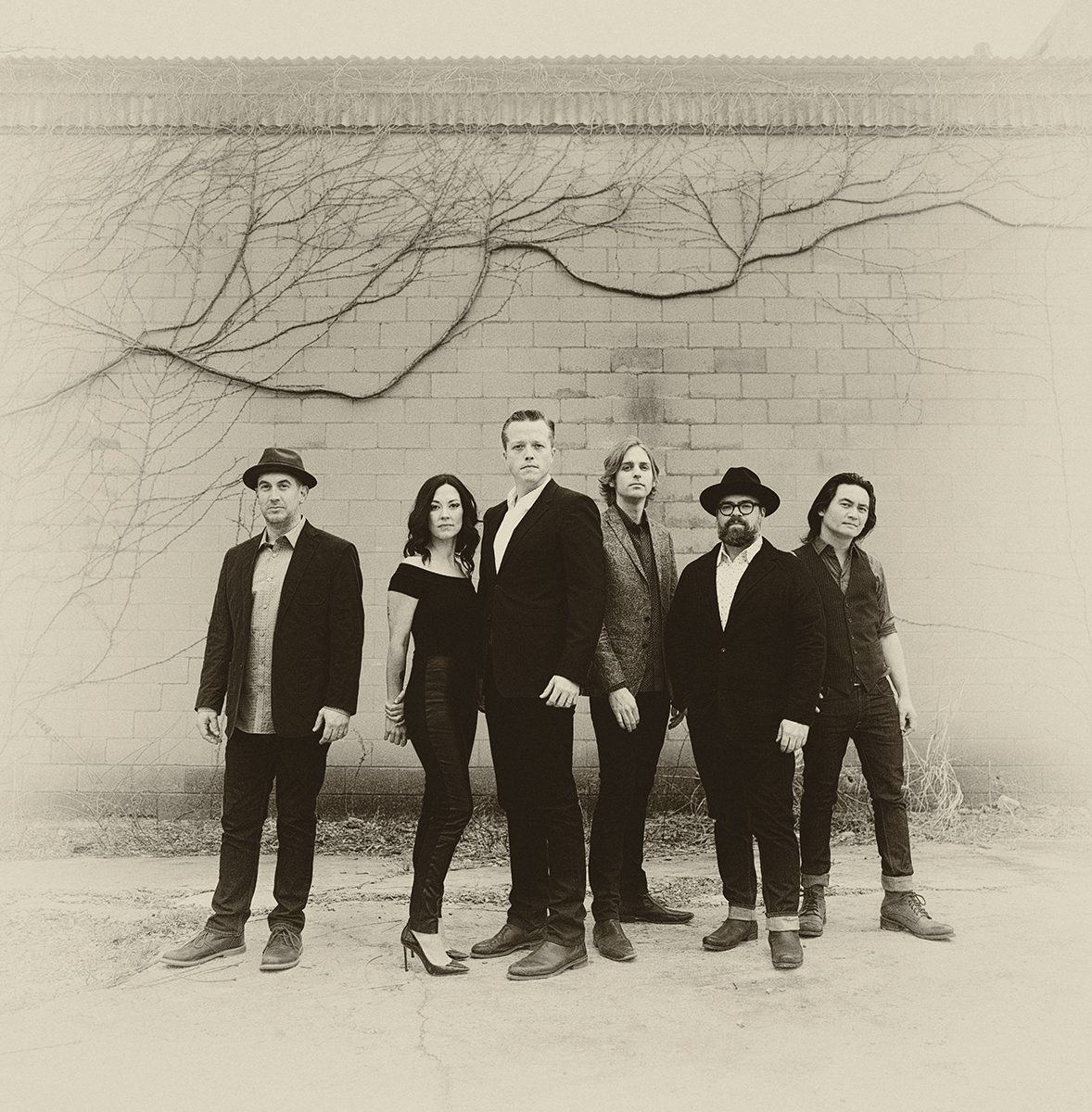
“There are more uptempo, loud songs than there have been on the past couple of albums,” he agrees, “but that was really just a lucky accident, a happy mistake. I just write the songs and try not to mess ’em up when we record ’em. So if they sound like they want to be a rock song and I get excited, I’m like ‘Ah great, this is one that’ll wake everybody up.’ We got lucky with four or five songs on this album.
“It’s hard for me to write rock’n’roll songs, you know, because I’m always trying to get a series of points across, and I’m not very good at writing your boneheaded, Bon Scott, lyrics. And I love them just as much as I love Dylan or anything else, but I can’t make ’em. I just can’t access that part of my brain.”
When was the decision made to call this a 400 Unit record? “That was at the end, when we tracked everything, really. We just had a few overdubs left, so at the end of the primary tracking is when I decided that we would call it that. I thought their contributions were important enough to warrant that. It might be decided sometimes arbitrarily, but it just felt like a good idea.
“Musically, it’s not as scattershot, I think it’s more focused stylistically, in a lot of ways. It’s probably more focused in all ways than the last 400 Unit records we made, but it’s still the same bunch of folks, for the most part.”
Among the highlights of The Nashville Sound is the gently elegiac love song If We Were Vampires, with its charming but realistic romanticism. “That’s the last one I wrote for the record, I wrote that on Friday and we started recording on Monday. I didn’t expect to get it at all, I just thought ‘I’m off and I’m home, I’ll see if I can write another song.’ And I sat around until about two o’clock in the afternoon, nothing happened, and then it all just sort of came out.”
I wonder whether the archetypal blank sheet of paper ever stare back at him. “I’ll go through my notes, and if nothing jogs my memory or seems appealing, if there’s nothing I can build on, I’ll just go to a blank sheet. If We Were Vampires started with that chord progression, and I remember I was just strumming a guitar and talking to Amanda about how I hadn’t found anything good all day. Then I got a bite and I just stayed with it.
“Sometimes it’s a lyric, very often it’s a phrase that I’ll start repeating until I can find a melody for it, then I’ll pick up a guitar and find chords.”
One thing you won’t ever hear him moaning about is writer’s block. “I don’t believe in that,” he says firmly. “I do have periods of time where I’m not really able to enjoy much of what I’m writing, but you just write through those. I think writer’s block is bullshit, it’s just an excuse. That’s just not wanting to work.
“I understand how you can be blocked from enjoying the writing you’re doing. I go through periods like that where I think it’s all shit. But man, that was the first ten years of my career, my pre-career, [when] the songs I wrote were all shit. I didn’t say I had writer’s block because I couldn’t write a beautiful song. I just kept writing the songs until one of them turned out to be good. It’s like anything, the more you do it, the better you get at it.”
His relationship with Cobb is founded, you sense, on something more than mutual respect. There’s also an unspoken recognition that neither of them is more important than the work. “Dave’s records don’t sound like Dave,” says Isbell. “Because he is selfless in the pursuit of enriching the song, or at least not ruining the song. He just serves the song first and foremost.
“But also I think he has enough influences, because if you put enough things in the stew, you’re not going to taste the individual ingredients as easily. That’s the thing with Dave, he likes a lot of different kinds of music. He grew up in Atlanta, when he was a teenager, playing guitar on Atlanta R&B from the 90s, which was very pop. It was serious pop music.
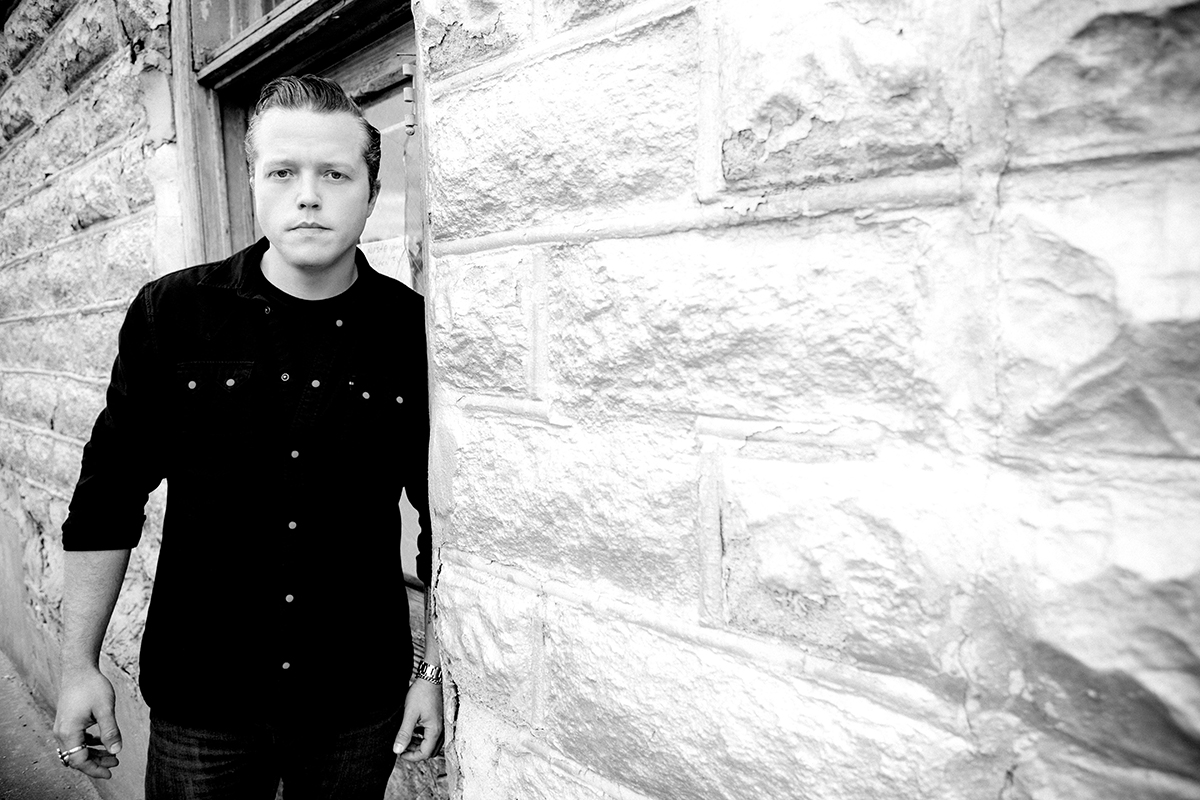
“But also he has this great love for concept country music from the 70s, even some of the stuff that has fallen through the cracks, historically. Then for Simon & Garfunkel, and heavy, stupid rock’n’roll riffs. He’s all over the place. I like that you listen to his records and you don’t ever go ‘That’s a Dave Cobb record.’ Even with a lot of brilliant producers, you do.”
So what is the sound of Nashville? Isbell thinks it’s changing, and the good news is, for the better. It’s an observation informed by making the new album in the old-time epicentre of Nashville, the world-famous RCA Studio A. “That’s what they call the home of the Nashville sound, when Chet Atkins was running the place in the 60s and 70s,” he says.
“But to me, it’s important to notice that Nashville doesn’t sound like popular country music anymore. That whole method is slowly becoming extinct. Maybe not slowly, but it’s definitely happening. It’s hard to make corporate country when the corporations aren’t making the money they used to. The formulaic music is not working anymore, because people have access to things that are more honest.”
The Righteous Path
That turning point was represented for many by Stapleton’s dizzying success with Traveller. “I don’t belong in that world like he does,” says Isbell, “and he’s also a very obvious line of demarcation. If you were watching the CMA Awards the night he and Justin Timberlake performed, everything that came on after them looked very different. It was like a switch got flipped right there. ‘Something real just happened, and this is not cutting it anymore.’ There are more routes for us into the mainstream.”
There are also rewards for perseverance, as also seen with Little Big Town’s rise to such prominence. “They’d been working for so long,” he observes. “I saw them in a casino in Wisconsin, out on the floor, not even in one of the big rooms. While I’m playing cards, Little Big Town are next to me singing. They didn’t give up. Everybody gives up, and they didn’t.”
Already on touring in the US, Isbell and the 400 Unit will visit Europe in October. As a measure of how far he’s come, the London show will be at the 1,700-capacity Roundhouse. Jason said: “I’ve never been there, but I know what it was a big old Victorian kind of train station. It’s taken us a while to generate that much interest, because we weren’t able to come a whole lot. You can cover a lot of ground in the US, but I’m glad it’s gotten to the point now where we can come over and play something that size.”
In the reshaped Nashville, an ability to play live will be ever more important. Along with a happy home life and an ongoing creative streak, it’s another reason Isbell can smile. “I like touring, and I feel like I’ve been sort of grandfathered in, because I got to a certain point in my career before everything changed,” he says.
“Of course I look back and I say yeah, had we done this in the 70s, we probably would have had much more success, but I probably would have been dead. Long since, OD’d on something.
“What I really take pride in, and what’s important to me, is continuing to be consistent and having something to say. Not becoming a caricature of myself, not trying to write Jason Isbell songs, and not losing my editors. That’s one of the hardest things, I think, for anybody to do.
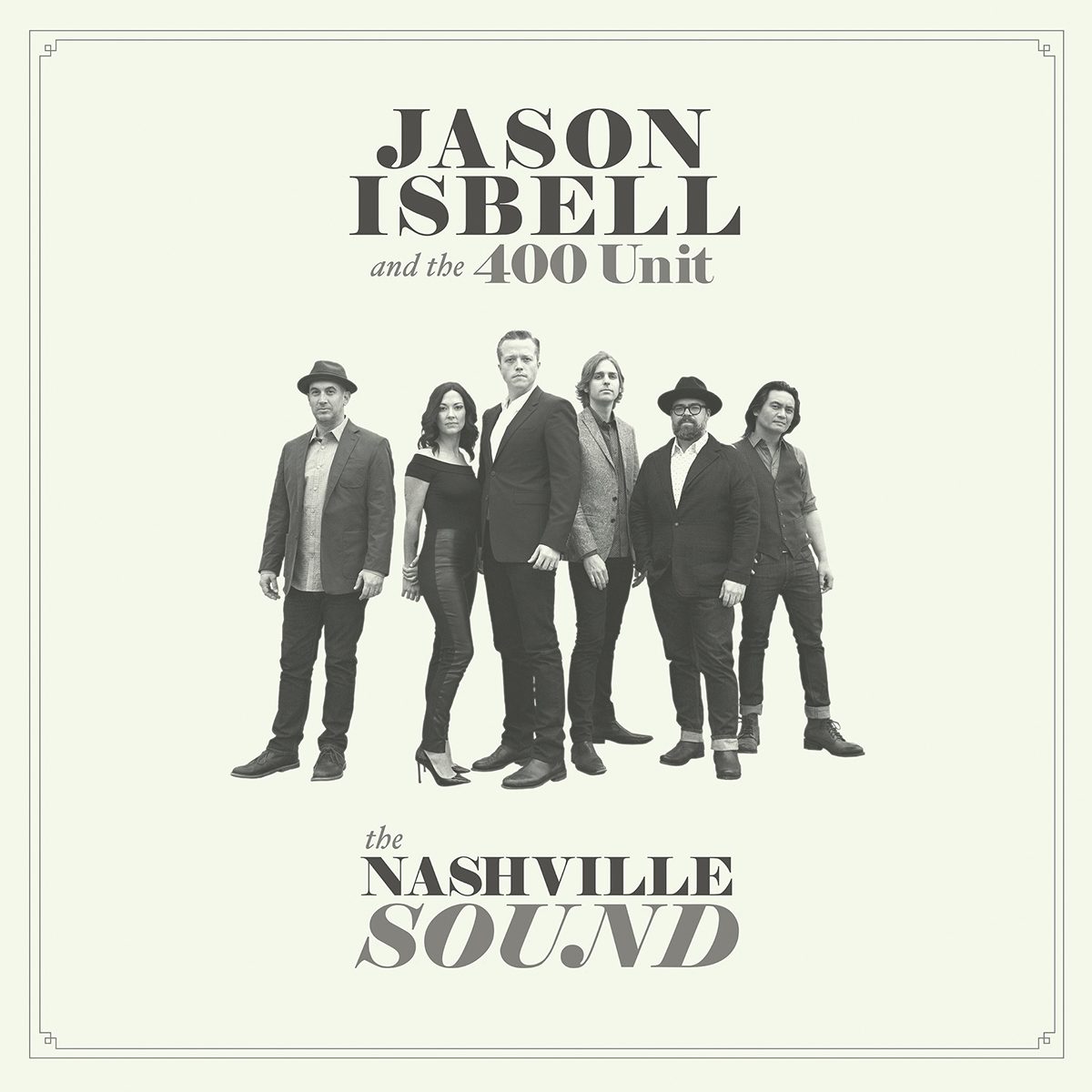
“You get to a certain point and think ‘I’m tired of growing,” he laughs again. “Like, ‘can’t I be done with this now?’ But that’s when you start becoming a caricature of yourself, in a lot of ways, if you’re an artist. Hell, if you’re a football coach, whoever you are, you have to have people who will help you edit whatever work you’re doing. Some artists isolate themselves from anybody who has any criticism to offer.
“Now, everybody’s a ‘hater,’ and some people are that. That’s a good term for some people, who get up in the morning looking for something to be pissed off about. But,” he concludes, “there are also people who are genuinely aware of your ability and your potential. Sometimes, if you take care of those relationships, those people will help you find new avenues and help you stay relevant as an artist.”


